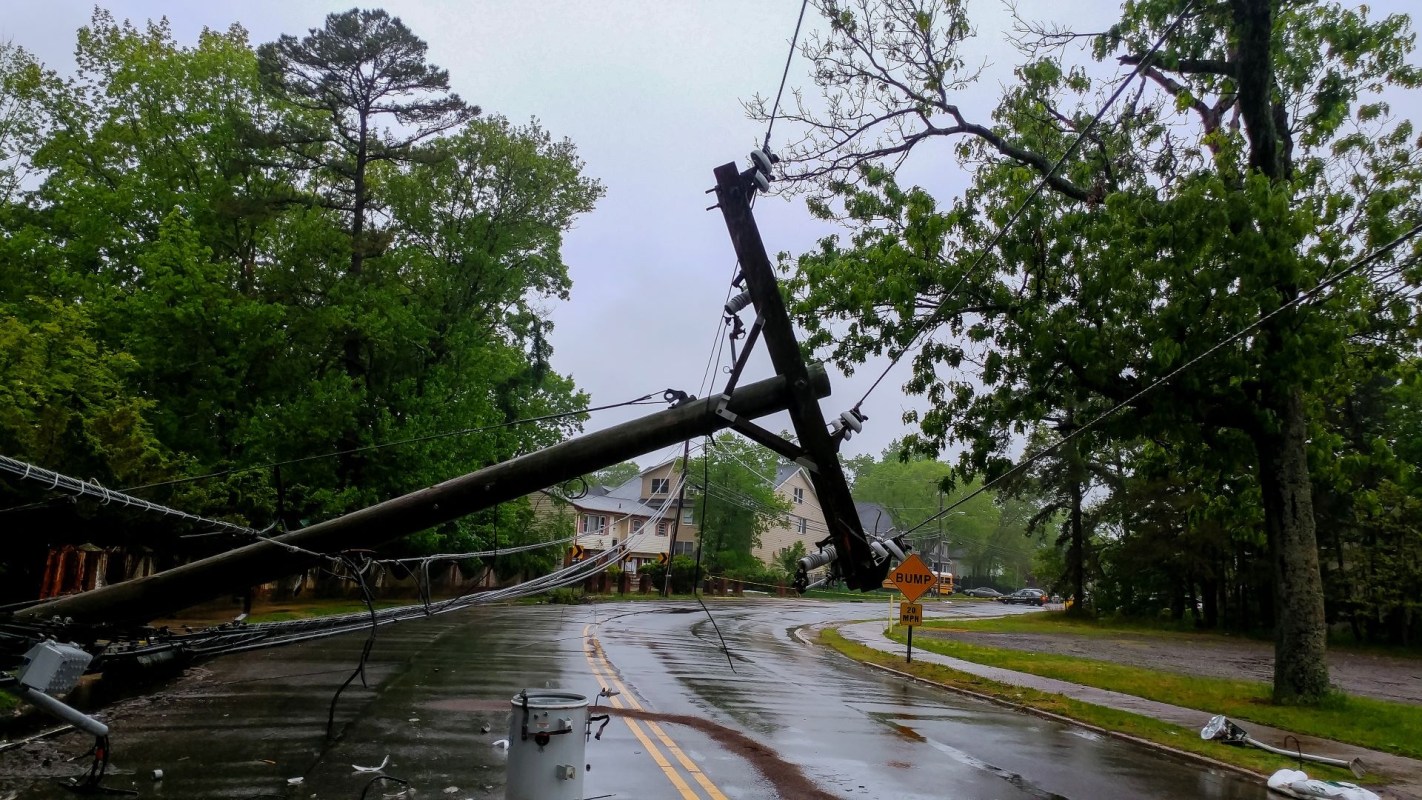Since this February alone, Fort Lauderdale, Florida, was slammed with 20 inches of rain in just six hours (a "one-in-a-thousand-year flood"), New Hampshire's Mount Washington experienced a blistering wind chill temperature of -108 degrees Fahrenheit, and Venice's famous canals dried up.
Terms like "bomb cyclone," "firenado," and "atmospheric river" are now tossed around in weather reporting.
Our rapidly overheating planet is leading to the increased severity of intense weather events.
Our overheating planet is like 'steroids for weather'
As journalist and climate tech investor Molly Wood explained in a blog post, "climate isn't weather, and weather isn't climate."
However, as Wood eloquently puts it, rising global temperatures are "basically steroids for weather."
"Whatever was already going to happen, like droughts, floods, fires, tornadoes, hurricanes, heat waves, snowstorms, rain — all that is still going to happen," she wrote. "But when it happens, it's going to be worse. Also, extreme versions of what used to be normal weather are going to happen more often."
To put it in perspective, Major League Baseball legend Barry Bonds was still hitting home runs before his steroids use. But there was no doubt that his likelihood of knocking one out of the park increased after taking performance-enhancing drugs.
Decreasing "steroid" use — i.e. cooling down our planet by lessening our reliance on the dirty energy sources that contribute to its overheating — could mean fewer "home runs," which, in this case, are devastating and costly weather disasters. And, in this case, we want the weather to strike out.
To better understand the impact of this "steroid," we can also turn to the field of attribution science.
Attribution science
Attribution science aims to understand how much more likely an event will happen because of our overheating planet.
For example, the Pacific Northwest experienced an intense heatwave in 2021 that was labeled as a "1 in 1000-year heat wave" and "virtually impossible without human-caused climate change."
Without the additional heat added by our hotter planet, this heat wave would have been a "one-in-150,000-year" event, and therefore more rare.
Hotter temperatures aren't the only steroid that our weather is taking. When air is hotter, it can hold more moisture — approximately 4% more water for every degree Fahrenheit — so when it rains, it pours, which can spark other deadly weather events, like floods and mudslides.
While hurricanes in general have not become more common, they have more often reached Category 4 and 5 as climate change provides the perfect conditions for storms to intensify rapidly. Some of the hurricanes over the last decade have been so bad that scientists have called for a new Category 6.
Wildfires in the American West are also worsened by drier and hotter conditions, turning trees into tinder for the growing blazes.
How can I help?
We can decrease our planet's steroid-fueled tantrums by switching our reliance to more abundant, clean forms of energy, like wind and solar, from costly dirty fuels, like gas and coal.
If you install solar panels on your home, not only will you be helping cool down our planet, but you could also cut your energy bill to zero dollars a month. And if your panels produce more energy than you use, you could even have a negative balance on your bill.
Thanks to the Inflation Reduction Act, you can get a 30% tax credit for solar equipment and installation, making it way more affordable.
And if the upfront cost is still too much, joining a community solar program would allow you to benefit from cheap, clean energy without the costs of installing any panels.
Another way you can help keep our planet from overheating is by upgrading your home goods to more sustainable options. From electric leaf blowers and lawn mowers to plastic-free products and more sustainable toilet paper, swaps like these can keep pollution out of your community.
Luckily, there's no shortage of possible swaps and upgrades. And most of them are good for your wallet, too.
Join our free newsletter for cool news and cool tips that make it easy to help yourself while helping the planet.









